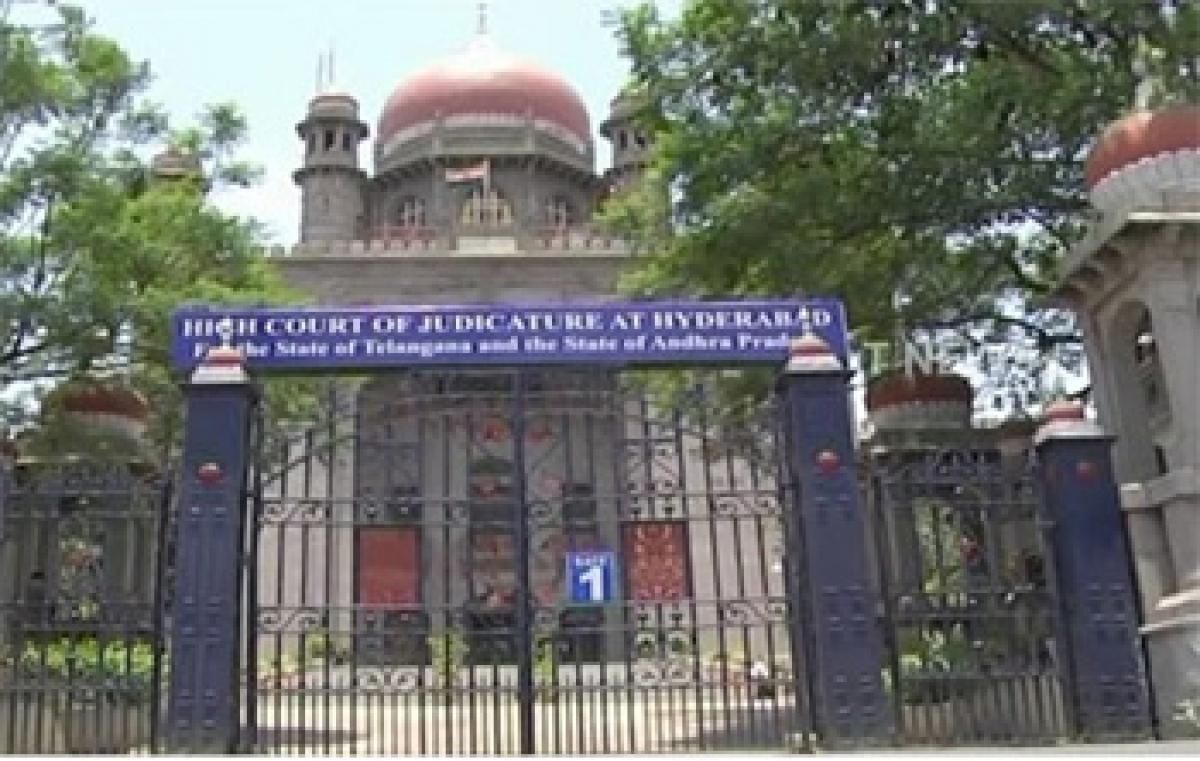Battle for HC split hots up

The issue of bifurcation of the present High Court of Judicature at Hyderabad into two separate High Courts for Andhra Pradesh and Telangana States saw an interesting legal battle between the parties in front of a special bench comprising Acting Chief Justice Dilip B Bhosale and Justice Sanjay Kumar on Thursday.
Hyderabad: The issue of bifurcation of the present High Court of Judicature at Hyderabad into two separate High Courts for Andhra Pradesh and Telangana States saw an interesting legal battle between the parties in front of a special bench comprising Acting Chief Justice Dilip B Bhosale and Justice Sanjay Kumar on Thursday.
The Telangana State government had filed a Revision Petition against the order of a division bench of this High Court delivered in 2015 dismissing a Public Interest Litigation petition seeking direction for bifurcation of the High Court.
The division bench comprising the then Chief Justice Kalyan Sengupta and Justice Sanjay Kumar had observed in its order in 2015 that “The constitution of High Court in any part of the State of Telangana for the State of Andhra Pradesh, including Hyderabad, would be an action not permitted by law”.
The Telangana State government had offered to provide infrastructure in Hyderabad till permanent arrangements for High Court of Andhra Pradesh were made in the new capital of that State. The judgment of the division bench interpreted the legal position under Article 214 of the Constitution read with Section 31 of the AP Reorganisation Act, 2014 to come to that conclusion.
This conclusion was challenged in the present Review Petition. Advancing his arguments before the bench for nearly two hours, Advocate General of Telangana K Ramakrishna Reddy said Article 214 and Section 31(2) of AP Reorganisation Act do not impose any limitation on location of the new High Court unlike in other State Reorganisation Acts that had mentioned a particular place for setting up the new High Courts.
He argued that the President of India, i.e., Union government in the Constitutional scheme, was given discretion in this matter. But the order of the High Court in 2015 had imposed restrictions on the powers of the President.
He also stated that the Central government had informed the State government that the judgment of the court was coming in its way in establishing a separate High Court. The bench remarked that in that case why the Central government had not challenged the judgment.
The Additional Solicitor General of India in his arguments endorsed the view of Telangana Advocate General that the judgment of the High Court in 2015 had imposed restriction on the exercise of statutory power of the Union government.
He argued that the High Court had gone a step ahead before the Union government could consider any proposal in this regard. He asserted that the Centre had no statutory obligation in extending financial support for creation of a High Court of Andhra Pradesh outside that State.
It is mandated to extend help only if it was within that State. To this, the bench asked why the Centre had not extended financial help despite its specific order in the judgment of last year and felt it almost amounted to contempt of court.
The Andhra Pradesh Advocate General Dammalapati Srinivas also told the bench that despite many appeals, no financial help in this regard was forthcoming from the Centre.







